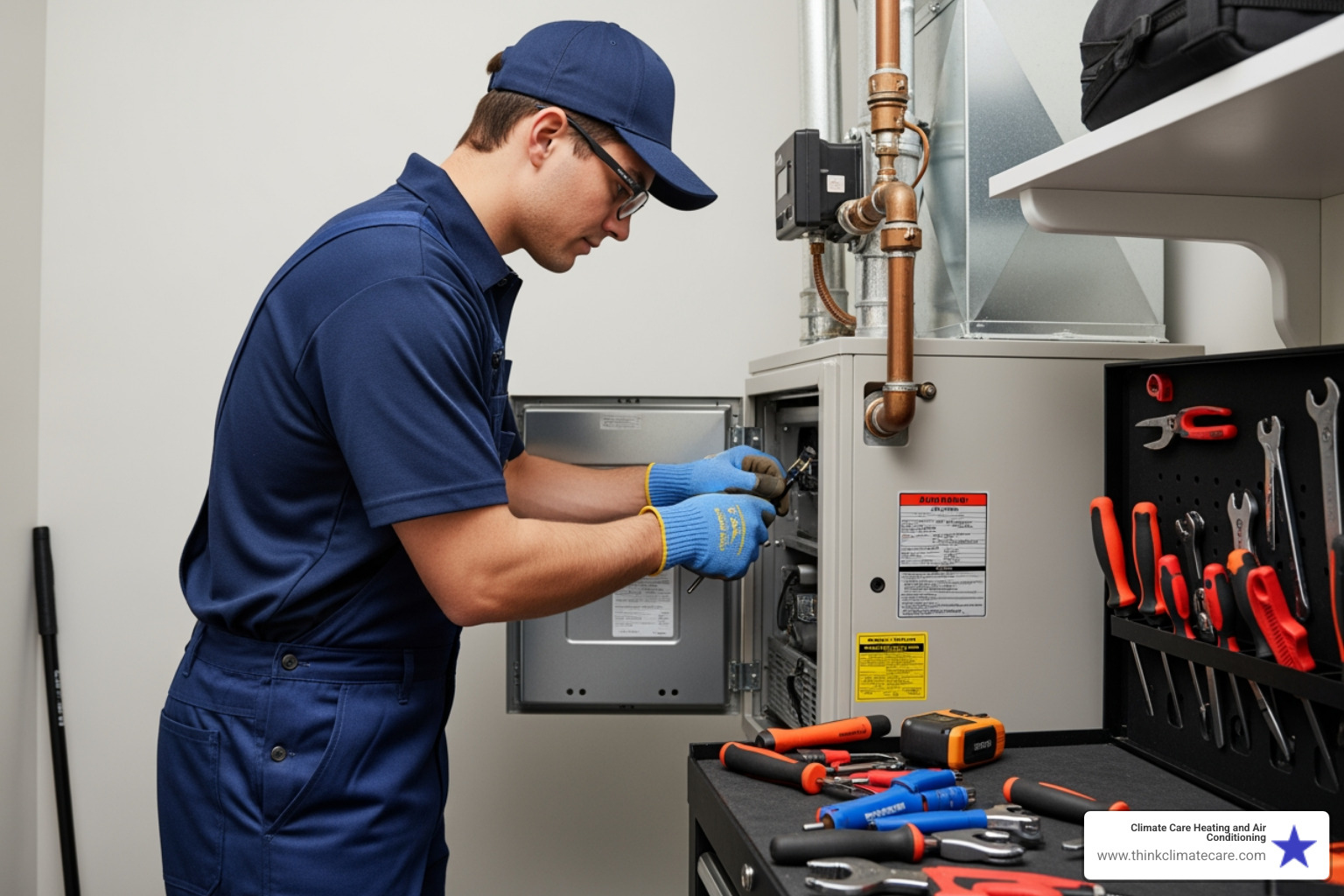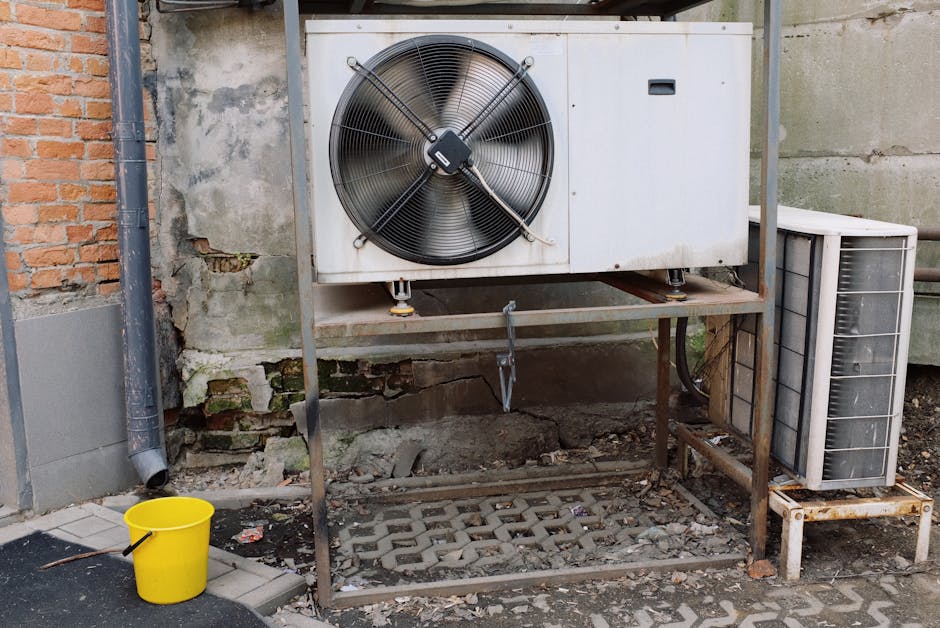The Ultimate Guide to Emergency AC Repair: Day or Night
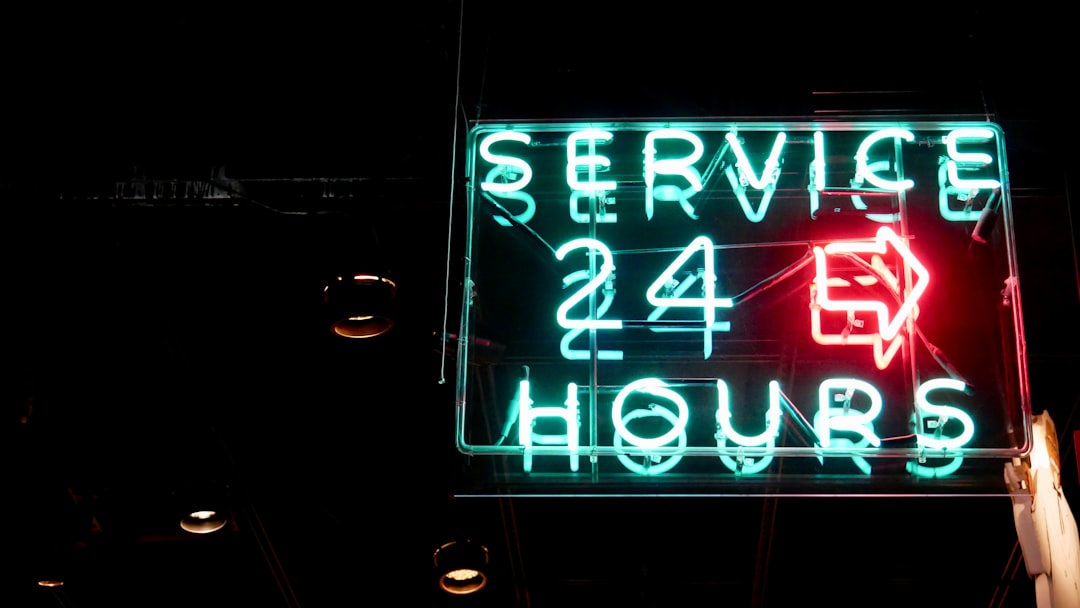
When Your AC Fails and Every Minute Counts
When you need 24 hour AC repair, you're likely facing a critical situation that can't wait. These emergencies often involve:
- Complete system failure during extreme heat (above 90°F).
- Electrical issues like burning smells or sparking.
- Refrigerant leaks that pose health and safety risks.
- Loud grinding or banging noises indicating mechanical failure.
- Significant water leakage that could damage your home.
- Frozen evaporator coils preventing any cooling.
Air conditioning emergencies happen at the worst possible times. When your AC quits during a heatwave, waiting isn't an option. Extreme temperatures don't just make you uncomfortable—they can create serious health risks, especially for children, elderly family members, and anyone with medical conditions. That's why reliable 24-hour AC repair services exist.
Most emergency AC repair services aim to respond quickly, with many attending to non-operational calls on the same day. The key is knowing what constitutes a true emergency, how to prepare for the technician's arrival, and what to expect during the repair process.
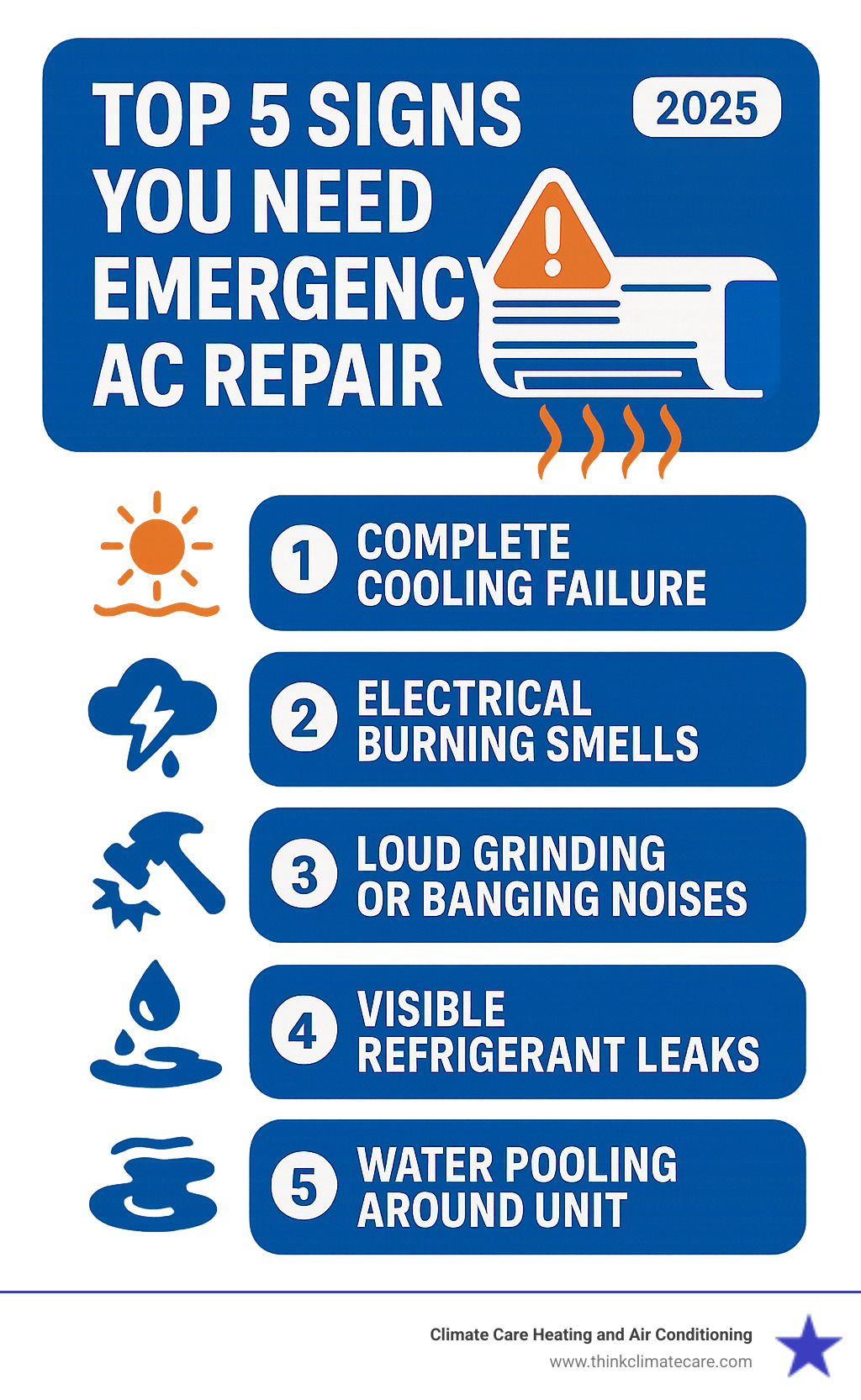
Your Action Plan for 24 Hour AC Repair Emergencies
When your AC fails on the hottest day of the year, a clear action plan can help you manage the stress and get your home comfortable again quickly.
What Qualifies as an AC Emergency?
Not every AC issue is an emergency, but some situations demand immediate attention. Call for 24 hour AC repair if you experience any of the following:
- Complete cooling failure during extreme heat: When temperatures are above 90°F and your AC stops working, it's a health risk, especially for children, the elderly, or those with medical conditions. If your system is blowing hot air, it's a clear sign of a serious problem.
- Electrical issues and burning smells: A burning odor from your vents or unit is a fire hazard. Turn off your system immediately and call for help.
- Loud grinding, banging, or screeching noises: These sounds often signal severe mechanical failure, like a problem with the compressor or fan motor. Our guide on why AC fan motor is making grinding noises explains more.
- Refrigerant leaks: Hissing sounds or ice on your indoor coils can indicate a leak. Refrigerant is a hazardous chemical that requires professional handling.
- Frozen evaporator coils: If your indoor unit is covered in ice, it cannot cool your home and may sustain further damage.
- Significant water leakage: Pools of water around your unit point to a clog or crack that can cause water damage to your home.
These situations pose safety hazards or risk serious system damage and require immediate professional help.
What to Do Before the Technician Arrives
Taking a few steps before the technician arrives can speed up the repair and prevent further damage.
- Turn off your AC system: This is the most important step. Switch off the thermostat and turn off the power at the circuit breaker.
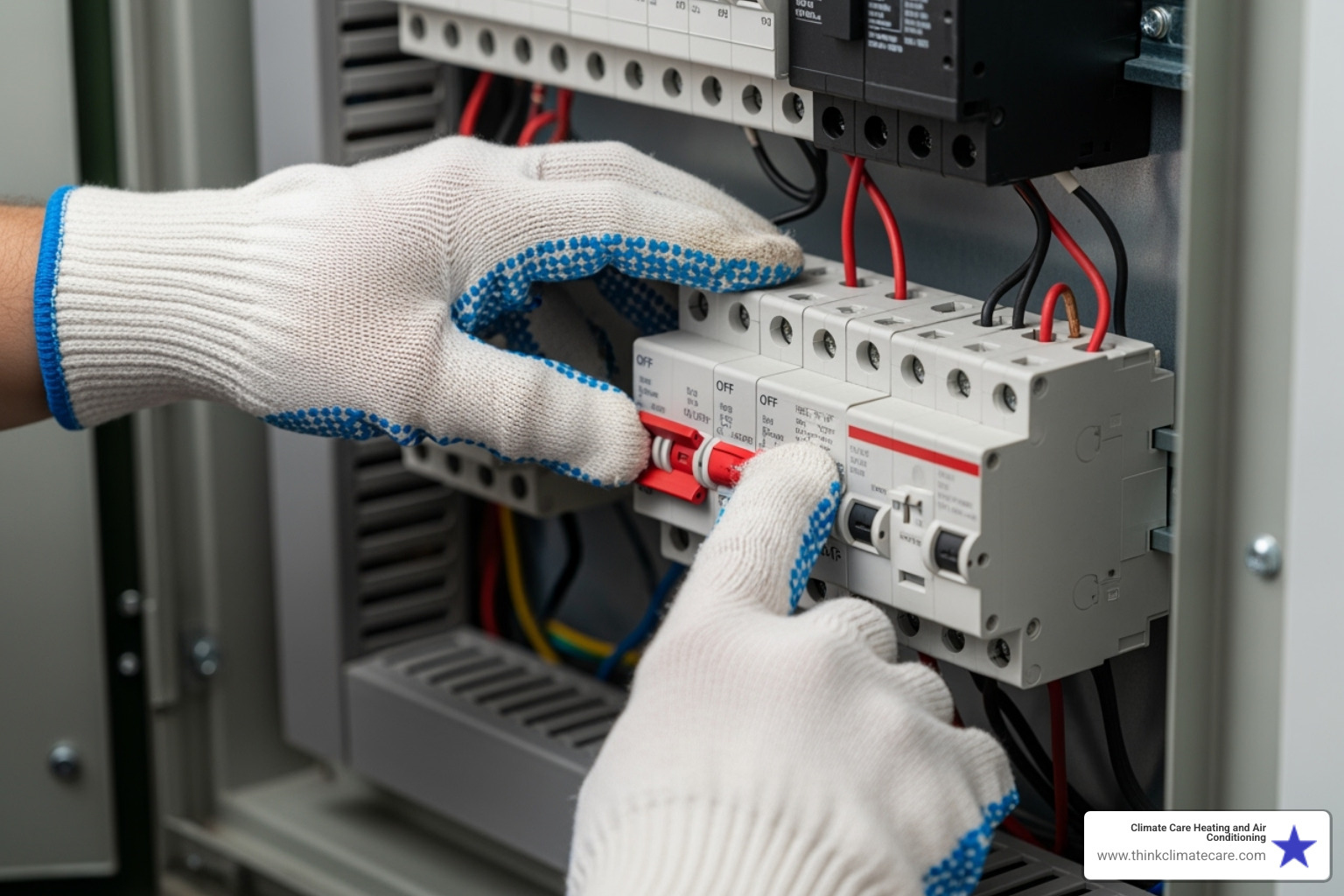
- Check your thermostat: Ensure it's set to "COOL" and the temperature is set lower than the current room temperature. Try replacing the batteries.
- Inspect your circuit breaker: A tripped breaker is common. Flip it off, then on. If it trips again, leave it off and wait for the technician.
- Clear debris from your outdoor unit: Remove leaves, grass, and dirt from around the condenser. Ensure at least two feet of clear space on all sides.
- Ensure clear access: Move any objects blocking the indoor and outdoor units so the technician has a clear workspace.
- Note down symptoms: Write down what you're observing—noises, smells, leaks—to help the technician diagnose the problem faster.
Finding and Vetting a Reliable 24 Hour AC Repair Service
When you need help fast, it's crucial to identify a trustworthy service. Here’s what to look for:
- True 24/7 availability: Look for companies that answer their phones around the clock, not just an answering service.
- Proper licensing and insurance: Verify that the company and its technicians are licensed and insured to protect you from liability.
- Technician qualifications: NATE-certified technicians with ongoing training can diagnose and fix problems more effectively.
- Multi-brand expertise: A good emergency service can handle all major AC brands and models.
- Transparent pricing: Reputable companies explain their diagnostic fees and after-hours charges upfront.
- Strong online reputation: Check recent Google reviews, focusing on emergency service experiences.
- Service guarantees: Look for warranties on parts and labor, which shows confidence in their work.
- Local service coverage: Ensure they serve your area for a fast response. At Climate Care, we provide emergency HVAC service in Sacramento, CA and emergency HVAC service in Stockton, CA, plus surrounding communities.
Understanding the Costs of 24 Hour AC Repair and What to Expect
Emergency repairs come with specific costs. Understanding them helps you prepare.
- After-hours fees: These cover the premium for having skilled technicians available on nights, weekends, and holidays.
- Diagnostic charges: This fee pays for the technician's time and expertise to accurately identify the problem.
- Parts and labor costs: This is the main part of the bill, varying based on the specific parts needed and the complexity of the repair.

During the service call, a technician will perform a thorough diagnosis, explain the problem clearly, and provide a transparent quote before starting work. Many common repairs can be done on the spot. Afterward, they will test the system to ensure it's working correctly and clean up the workspace. For more details on our process, visit our page on our repair services.
From Emergency Fix to Long-Term Comfort
An urgent 24 hour AC repair call is more than just a quick fix; it's a chance to plan for long-term comfort. Your AC emergency is a red flag. Sometimes it's a simple repair, but other times it's a sign that your unit is nearing the end of its life.
Repair vs. Replacement: Making the Right Call in a Crisis
Deciding whether to repair or replace your AC during an emergency is tough. We help you weigh the options to make the best choice for your comfort and budget.
| Feature | Repair | Replacement |
|---|---|---|
| Pros | - Lower immediate cost | - Improved energy efficiency (lower utility bills) |
| - Faster resolution (if parts are readily available) | - Improved comfort and consistent cooling | |
| - Extends the life of a relatively new unit | - New warranty on parts and labor | |
| - Quieter operation | ||
| - Access to new features and smart home integration | ||
| Cons | - May be a temporary fix if the unit is old | - Higher upfront cost |
| - Older units may break down again soon | - Installation can take longer than a simple repair | |
| - Less energy-efficient, leading to higher utility bills | - Disposal of the old unit | |
| - Parts for older models can be difficult or expensive to find |
Key factors to consider include:
- Age of your unit: If your AC is 10-15 years or older, it's likely nearing the end of its lifespan. Frequent breakdowns are a common sign.
- Repair cost: If a repair costs more than half the price of a new system, replacement is often the more economical choice in the long run.
- System performance: High energy bills, strange noises, and uneven cooling are all signs of a failing AC system.
- Energy efficiency: Modern AC units are far more efficient, leading to significant monthly savings on your utility bills. You can learn more about how they work on the Wikipedia page on air conditioning.
While a repair solves the immediate problem, a new system can provide years of worry-free comfort. Explore our AC replacement services to see your options.
How to Prevent Future AC Breakdowns
The best 24 hour AC repair is the one you never have to make. Proactive maintenance is key to avoiding stressful and costly breakdowns.
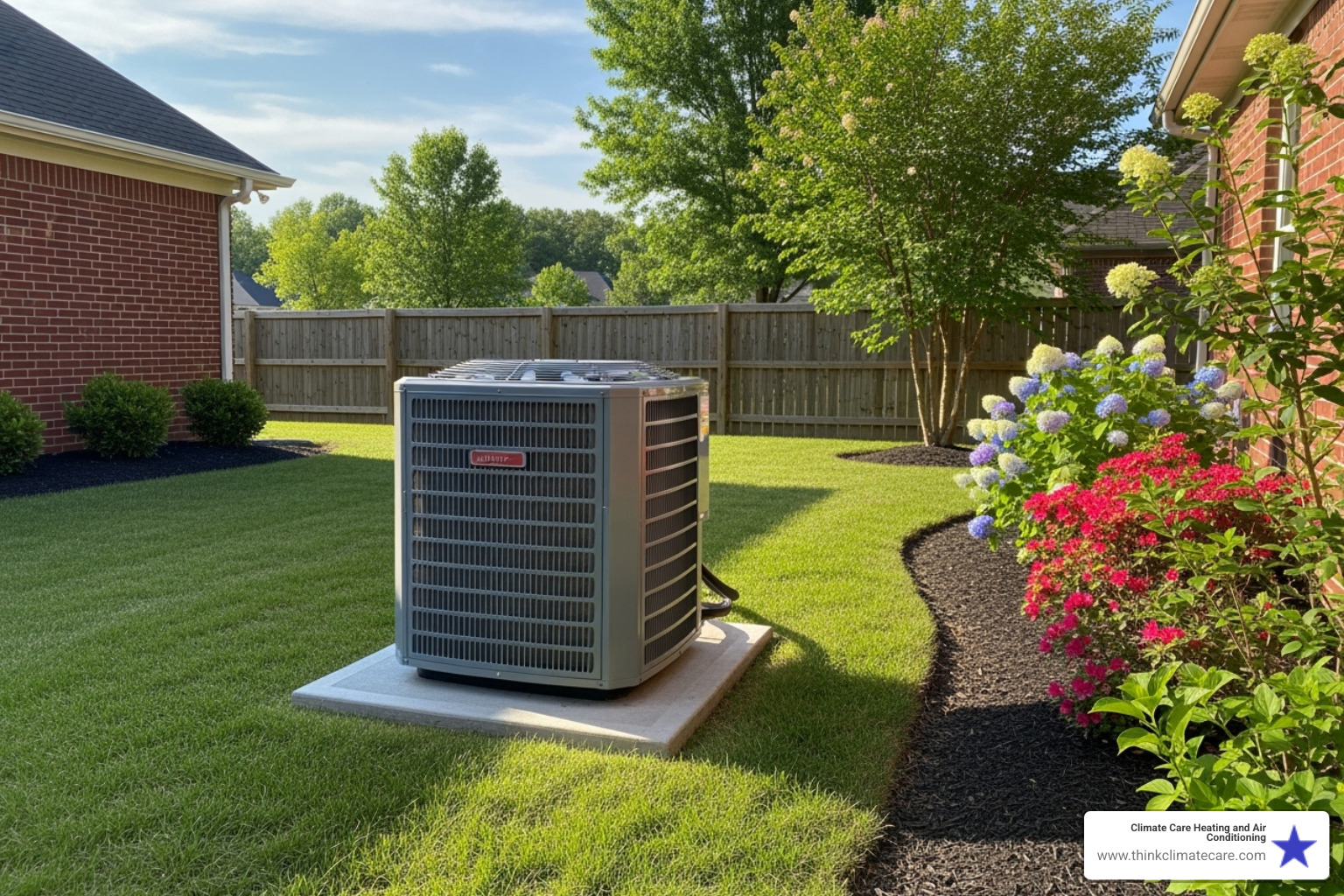
- Schedule regular professional maintenance: An annual tune-up, ideally in the spring, allows technicians to catch small issues before they become emergencies.
- Change your air filters regularly: Clogged filters restrict airflow and strain your system. Check them monthly and replace them every 1-3 months.
- Keep your outdoor unit clean: Clear away leaves, grass, and debris from the condenser unit to ensure proper airflow. Maintain at least two feet of clearance around it.
- Clean your evaporator drain pan: Prevent clogs and water leaks by keeping the drain pan and line clean.
- Watch for warning signs: Don't ignore minor issues like strange noises or small leaks. Addressing them early can prevent a major failure. Our guide on indicators you need professional AC repair can help.
At Climate Care, we believe in holistic HVAC care. Our membership plan simplifies maintenance, offers savings on repairs, and provides priority service. A little prevention goes a long way toward saving money and avoiding emergency calls. If you're in the Sacramento area, learn more from our guide to affordable HVAC repair experts near Sacramento.
We're here for you, whether for a planned tune-up or an unexpected emergency.
Customer Testimonials
Our customers love our service and support.











